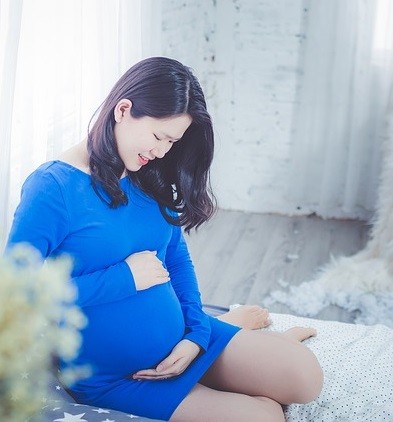 From the size of her belly to the speed at which her heart beats, a woman’s body undergoes major changes during pregnancy1. Over nine months, her hormones fluctuate constantly. As hormones and acne are closely linked, how does pregnancy affect her skin? What about the “pregnancy glow”?
From the size of her belly to the speed at which her heart beats, a woman’s body undergoes major changes during pregnancy1. Over nine months, her hormones fluctuate constantly. As hormones and acne are closely linked, how does pregnancy affect her skin? What about the “pregnancy glow”?
Because hormones have a different effect on everyone, it’s impossible to predetermine how pregnancy will impact a woman’s acne. Although every woman’s experience is different, below is an extremely simplified explanation of how pregnancy can affect a woman’s acne.
First Trimester
In the first trimester, a woman’s hormones become progesterone dominant. Progesterone is an androgen (male dominant) hormone that causes your skin to produce a larger amount of thick, waxy sebum (aka oil). The skin’s sebum production is the stimulant that causes acne or skin breakouts. For this reason, most acne flare-ups happen in early pregnancy.
To make matters worse, morning sickness is also typically experienced in the first trimester. When a pregnant woman is too sick to eat, she may become vitamin deficient, which also plays a role in breakouts.
Second Trimester
By the second trimester, progesterone and estrogen levels tend to even out and roughly return to the pre-pregnancy balance. The woman tends to feel better physically and her acne starts clearing-up.
Third Trimester
It isn’t until the third trimester that women get the desirable “pregnancy glow,” which happens for a couple of reasons:
- Estrogen becomes the dominant hormone, which creates a thinner, water-rich sebum that creates a radiant appearance. Estrogen also decreases oil production, which means fewer acne impactions.
- Blood volume reaches an all-time high. For some people this can cause redness in the face, but usually manifests in a healthy, luminous appearance.
Unfortunately, the third trimester pregnancy glow is short-lived. For many women, their acne returns postpartum or when they stop nursing. Of course, some women break-out through their entire pregnancy, while other women clear-up completely and remain clear. The relationship between hormones and the skin is extremely unpredictable.
For pregnant woman seeking acne treatment, products containing salicylic acid and vitamin A ingredients should be avoided. Otherwise, Acne Specialists generally treat pregnant clients the same as any other client. Of course, we recommend that all products be approved by her doctor — just to be on the safe side.
References